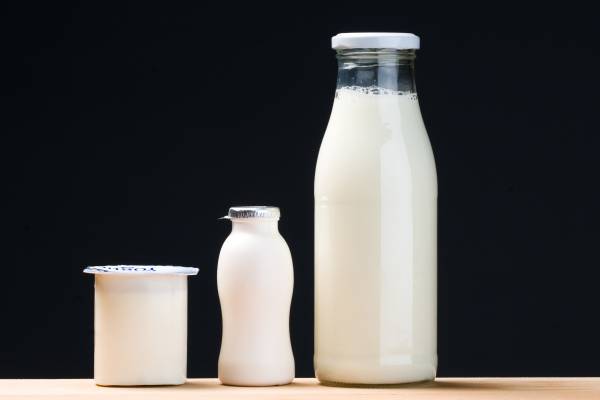Most of the articles written regarding nutrition focus on two major issues – weight loss and performance enhancement. Obesity is a worldwide epidemic and garnishes the attention it deserves. However, there are other epidemics the world is facing that do not get the same media exposure.
This may be due to the topic being a tough one to talk about and also one that is poorly understood. The health epidemic I am speaking about is that of mood disorders. Mood disorders such as depression and anxiety affect approximately one out of every five people in the United States.
Could the overabundance or processed foods be causing this?
Do Antidepressants Always Work?
Most commonly, people affected by mood disorders are given medication or told, “It’s all in your head.” The problem with medication is that it does not always work, and when it does it tends to be a temporary Band-Aid.
“If you do decide to try a non-medication intervention to treat your mood disorder, make sure you discuss this with your doctor before removing your medication from your daily routine.”
A meta-analysis of the research concluded that antidepressant medications have a similar success rate as the placebo effect in treating mild to minor depression. There is some benefit to taking antidepressants with more severe the depression.1
I am not saying that antidepressants do not have their place. They most certainly do. However, for the millions of people suffering from mild to moderate depression there are other courses of action they can take that do not come with nasty side effects like medication. If you do decide to try a non-medication intervention to treat your mood disorder, make sure you discuss this with your doctor before removing your medication from your daily routine.
A Look at the Research
If you are dealing with a mood disorder, one of the biggest and potentially most beneficial changes you can make to your lifestyle is your diet. The health of our gut can directly impact the health of our mood. We have more bacteria in our guts than we have human cells in our body. This makes us more bacteria than human.
These bacteria, through evolution, have devised ways to send signals to our brains to help increase their survival. They send signals to every system in our body, including our immune system and endocrine system. These signals can cause a number of reactions, including altering our hormones that affect our mood.
Research has consistently shown that people suffering from mood disorders have a different gut microbiome makeup than healthy individuals. In fact, they have shown that people with major depressive disorder have an abundance of harmful gut bacteria and a reduction in beneficial bacteria.2 The changes in gut bacteria could be due to a number of factors. People suffering from mood disorders tend to not exercise as frequently, eat more poorly, drink more alcohol, and take more recreational drugs.
“Research has consistently shown that people suffering from mood disorders have a different gut microbiome makeup than healthy individuals.”
One study used MRI imaging to assess whether a healthy dose of probiotics actually alters brain function. For four weeks researchers gave female participants a fermented milk product with probiotics. The other groups received milk without probiotics or no intervention at all. The group that consumed the milk with probiotics showed an increase in midbrain activity, the area of our brain that controls emotion and our sensory systems.3

How to Optimize Gut Health to Enhance Our Mood
The first step in this process is removing all of the negatives. Avoiding processed junk foods is first. Go into your pantry and cabinets and throw out anything that comes in a box or bag. Basically, if it has a label (outside of eggs and meat), then it is processed – get rid of it.
Replace all of that processed food with lots of vegetables, fruits, meat, fish, eggs, nuts, and seeds. These are the foods that our gut microbiome has evolved along with over millions of years. I know that modern produce is genetically altered and not as rich in nutrients, but you will still be better off by eating more fruits and vegetables than processed foods. Also, removing processed foods can starve some of the harmful bacteria to help us regain our natural balance.
“Replace all of that processed food with lots of vegetables, fruits, meat, fish, eggs, nuts, and seeds. These are the foods that our gut microbiome has evolved along with over millions of years.”
Adding in a good quality probiotic can help, as well. A probiotic matched with a nutrient-dense diet can help lay the groundwork to increase our good gut bugs. Adding in some prebiotics, such as potato starch, may have an increased benefit, as well.
We also need to limit our stress. Stress can actually alter the makeup of our gut bacteria.4 In the modern world, we are constantly under a state of stress. We sit all day long, we are sleep deprived, we are nutrient deficient, and on top of all that, we have financial worries, family and relationship struggles, and so on.
Some stress is completely out of our control, but we still need to do our best to manage it. Forty minutes of daily meditation is all it takes to get all of the positive health effects of meditation.

Mind Your Gut
If you are the one out of every five Americans who suffers from depression or anxiety, first look at your gut health. The poor feelings that you constantly feel are not just in your head, but may well be “gut feelings.”
To optimize your gut health, remove all of the processed foods from your diet and replace them with nutrient-dense fruits and vegetables alongside quality protein such as meat, fish, and eggs. On top of changing your diet try adding in some daily meditation as stress can negatively alter our gut microbiome, as well.
I have seen many people make a huge transition in their moods, and you can too with these simple changes.
Further Reading:
- From Diet to Disorder: When Food Control Goes Too Far
- How Food Addiction Can Impact Your Mood
- Diagnosing and Treatin Seasonal Affective Disorder (SAD)
- New on Breaking Muscle Today
References:
1. Kirsch, Irving, et.al., Initial Severity and Antidepressant Effects: A Meta-Analysis of Data Submitted to the Food and Drug Administration. PLOS One (2008). Retrieved on June 3, 2015.
2. Jiang, H, et.al., Altered fecal microbiota composition in patients with major depressive disorder. Brain, Behavior, and Immunity (2015). Retrieved on June 3, 2015.
3. Tillisch, Kirsten, et.al., Consumption of Fermented Milk Product with probiotic Modulates Brain Activity. Gastroenterology (2013). Retrieved on June 3, 2015.
4. Bailey, Michael, et.al., Exposure to a social stressor alters the structure of the intestinal microbiota: Implications for stressor-induced immunomodulation. Brain, Behavior, and Immunity (2011). Retrieved on June 3, 2015.
Photos courtesy of Shutterstock.






